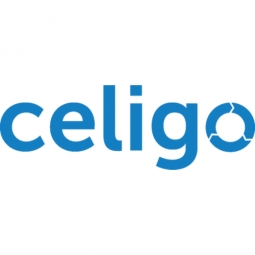Download PDF
Titan Brands' 10X Growth Through Automation with Celigo
Technology Category
- Application Infrastructure & Middleware - Data Exchange & Integration
- Application Infrastructure & Middleware - Middleware, SDKs & Libraries
Applicable Industries
- Consumer Goods
- Equipment & Machinery
Applicable Functions
- Procurement
- Sales & Marketing
Use Cases
- Leasing Finance Automation
- Supply Chain Visibility
Services
- Cloud Planning, Design & Implementation Services
- System Integration
The Challenge
Titan Brands, an online retailer of consumer and business goods, experienced rapid growth, expanding from 50 SKUs to over 3000 and processing over 3,000 orders a day. Initially, they used ChannelAdvisor to automate order processing across various ecommerce channels. However, as the business matured and expanded, the need for customization increased, and ChannelAdvisor was unable to meet these requirements. Additionally, ChannelAdvisor's transaction-based charging model became increasingly expensive for Titan Brands, especially during high-volume periods. The company's costs began to skyrocket, and the team felt penalized for their success. In 2016, Titan Brands decided to seek a different solution to meet their growing needs.
About The Customer
Titan Brands is an online-based retailer of consumer and business goods. The company specializes in commercial and farm attachments, loading ramps, fitness equipment, and various outdoor items. They sell over 3,000 different products to businesses and consumers across the US and Canada. Titan Brands started by selling ramps and attachments, but as they quickly grew and orders increased, the company needed to move away from manual order processing. In 2013, they procured a solution to help automate their processes across different ecommerce channels. However, as the company grew from 50 SKUs to over 3000, they faced challenges with their initial solution and decided to procure a different solution in 2016.
The Solution
Titan Brands chose Celigo as their new middleware platform for its entire ecommerce and supply chain operations. Celigo was selected for its customizability, centralized management, and a business model that didn't charge by transaction volume. Titan Brands started by leveraging Celigo’s prebuilt integrations with multiple online marketplaces to NetSuite, including Amazon, eBay, and Walmart. This allowed them to update pricing, inventory, listings, sales, returns, and provide near real-time data to customers. As orders grew to over one million annually, Titan Brands expanded its use of the Celigo platform to automate additional processes across its supply chain and broader organization. They integrated Salesforce Marketing Cloud and Klaviyo to automate all transactional and customer journey emails, enhancing the customer experience. They also integrated their payroll system, Paylocity, with Azure Active Directory to automate employee onboarding and offboarding. As the company continued to grow, it adopted Snowflake as its data warehouse and Domo as its Business Intelligence solution, leveraging Celigo for integrations from applications into Snowflake.
Operational Impact
Quantitative Benefit
Related Case Studies.

Case Study
Smart Water Filtration Systems
Before working with Ayla Networks, Ozner was already using cloud connectivity to identify and solve water-filtration system malfunctions as well as to monitor filter cartridges for replacements.But, in June 2015, Ozner executives talked with Ayla about how the company might further improve its water systems with IoT technology. They liked what they heard from Ayla, but the executives needed to be sure that Ayla’s Agile IoT Platform provided the security and reliability Ozner required.

Case Study
IoT enabled Fleet Management with MindSphere
In view of growing competition, Gämmerler had a strong need to remain competitive via process optimization, reliability and gentle handling of printed products, even at highest press speeds. In addition, a digitalization initiative also included developing a key differentiation via data-driven services offers.
.png)
Case Study
Improving Vending Machine Profitability with the Internet of Things (IoT)
The vending industry is undergoing a sea change, taking advantage of new technologies to go beyond just delivering snacks to creating a new retail location. Intelligent vending machines can be found in many public locations as well as company facilities, selling different types of goods and services, including even computer accessories, gold bars, tickets, and office supplies. With increasing sophistication, they may also provide time- and location-based data pertaining to sales, inventory, and customer preferences. But at the end of the day, vending machine operators know greater profitability is driven by higher sales and lower operating costs.

Case Study
Predictive Maintenance for Industrial Chillers
For global leaders in the industrial chiller manufacturing, reliability of the entire production process is of the utmost importance. Chillers are refrigeration systems that produce ice water to provide cooling for a process or industrial application. One of those leaders sought a way to respond to asset performance issues, even before they occur. The intelligence to guarantee maximum reliability of cooling devices is embedded (pre-alarming). A pre-alarming phase means that the cooling device still works, but symptoms may appear, telling manufacturers that a failure is likely to occur in the near future. Chillers who are not internet connected at that moment, provide little insight in this pre-alarming phase.

Case Study
Premium Appliance Producer Innovates with Internet of Everything
Sub-Zero faced the largest product launch in the company’s history:It wanted to launch 60 new products as scheduled while simultaneously opening a new “greenfield” production facility, yet still adhering to stringent quality requirements and manage issues from new supply-chain partners. A the same time, it wanted to increase staff productivity time and collaboration while reducing travel and costs.






